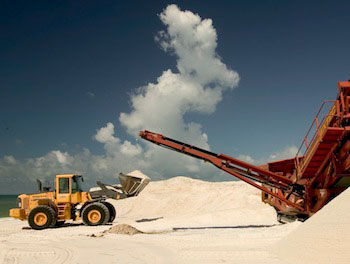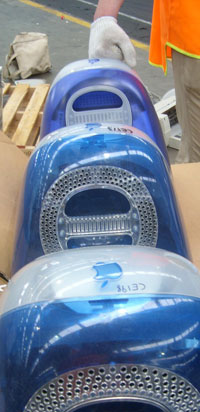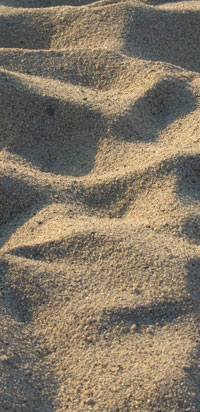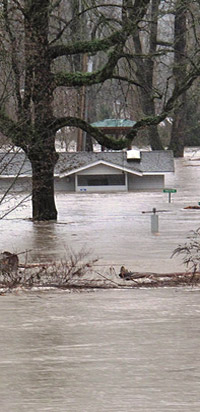
 The rush to mine sand for use in hydraulic fracturing, or "fracking," is spurring environmental concerns far from natural gas deposits.
The rush to mine sand for use in hydraulic fracturing, or "fracking," is spurring environmental concerns far from natural gas deposits.
Affected communities are asking if the mines are properly regulated, and some, particularly in the Midwest, are attempting to block new mines over concerns about the health risks of airborne silica.
Some oil and gas companies, such as EOG Resources Inc., own and operate their own sand mines. Such operations can bring about environmental headaches. For example, a Wisconsin dispute over how communities can regulate mining has escalated to the state Supreme Court. EOG is also dealing with unhappy landowners in Texas who say they don't want a proposed sand mine near them, partly because of the noise. Texas’ environmental agency plans to hold a public forum on the issue later this month. Residents of the Lone Star state and elsewhere face an ever-growing number of mines operated by a range of companies. Currently about 40 companies operate about 100 frack sand mines worldwide, more than double the number of companies from five years ago.
I'll be watching … to see if more oil and gas producers or their service providers open up their own sand mines. Right now supplies are tight for “proppant,” the industry term for sands and other particles used to hold fractures open, and demand for fracking wells remains insatiable due to crude prices hovering around $90 a barrel.
Notable quote: “They got one hellacious pile of sand out there,” Wisconsin cattle breeder Ken Schmitt said about the EOG Resources Inc. mine less than a mile from his house. “When EOG starts trucking, I think that’s going to be an eye-opener for everybody involved.”
Read more
Processing silica sand is fairly clean; in most cases it doesn’t require chemicals. However some communities near mines are concerned about other environmental ramifications of this "gold sand" boom. Washing the sand uses a large amount of water, and it’s unclear what effect that practice will have downstream. Some residents liken the mines’ practice of carving away earth to mountaintop removal coal mining. They also worry about air quality. States such as Iowa and Wisconsin don't currently regulate silica, even though the U.S. National Toxicology Program lists the tiny particles, about one-twentieth of the width of a human hair, as carcinogens in occupational exposure.
Notable quote: "There's been other counties where there's been frack sand mines for many, many years, and they've just kind of been sleepy deals, kind of under radar, steady business, but not explosive like we're seeing now," said Tom Portle of the Wisconsin Department of Natural Resources.
I was surprised to learn: As natural gas drilling goes deeper and deeper, the industry may use materials like aluminum or resin-coated ceramics. They're even tougher than silica sand, and while they may cost more, it could be worthwhile if hydrocarbon values continue to rise.
Read more
I was surprised by the sheer number of townships in Wisconsin that had no control over mining operations. The most valuable sand is located in Western Wisconsin, and most communities in that region have resisted zoning in the past because they felt it put unnecessary restrictions on land use. Now that the sand producers are flocking to Wisconsin in droves, some towns are scrambling to regulate future mining operations. However, they can't regulate any current mining operations without the cooperation of companies that have already set up shop.
Strange fruit: Cranberry producers own some prime sand land in Wisconsin, so some are turning to mining for extra income beyond growing fruit. Officials from the Department of Natural Resources note that some cranberry producers have been able to avoid reclamation regulations because their lands are currently considered agricultural, but DNR appears to be catching on to that loophole.
I'm keeping an eye on … legislation that might regulate nonmetallic mining. Wisc. State Sen. Kathleen Vinehout, a Democrat, is studying such a bill, which might include a severance tax that would allow local communities to recoup costs for cleaning up mining operations. But it's uncertain how it would fare in the Republican-dominated legislature.
Read more
| Tweet This Page |












